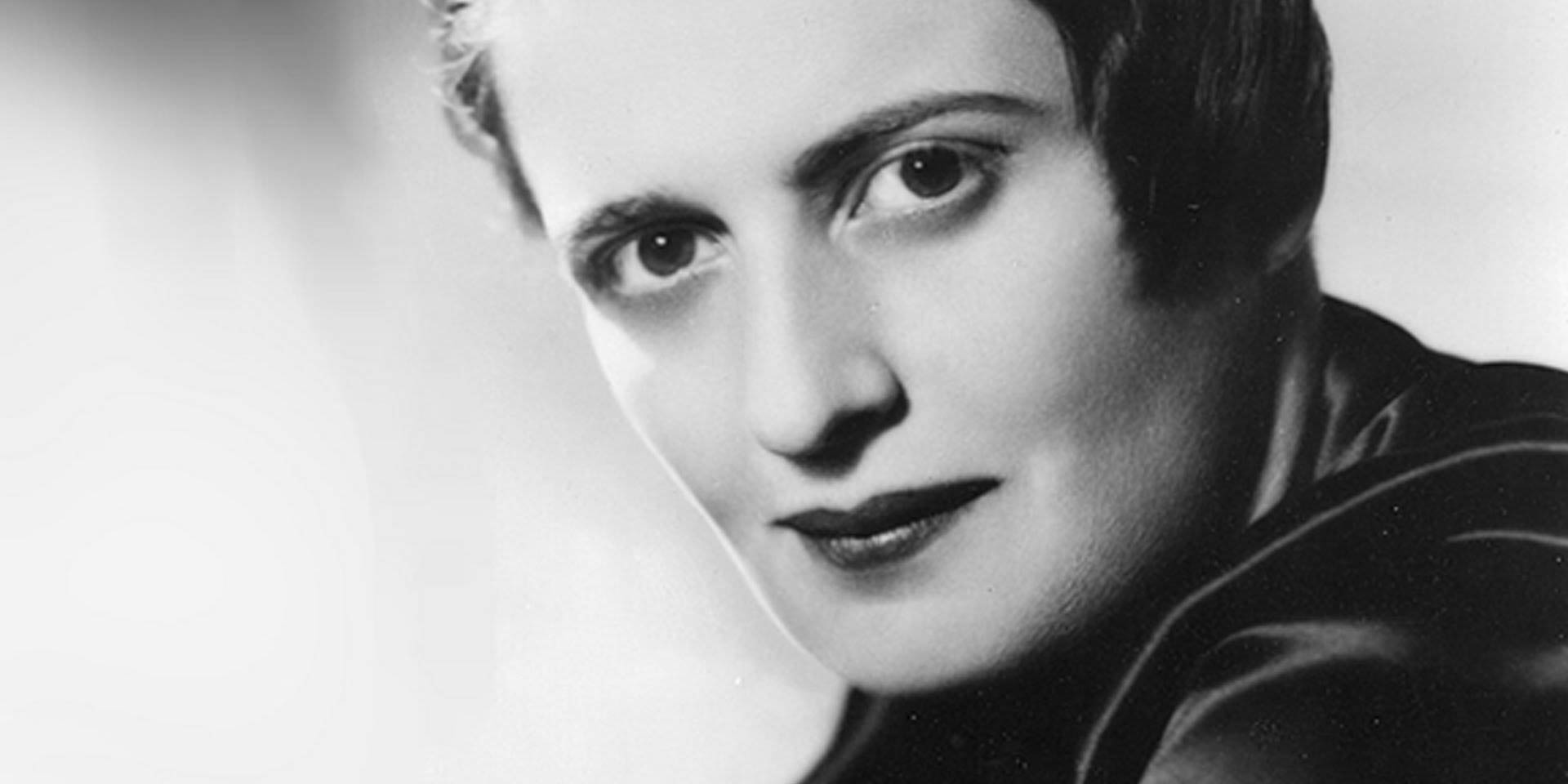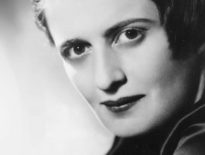These days, we are free to believe anything and to be anything, at least in theory. However, if we gave history a closer look, we would realise that it is not beneficial for us to believe or be just anything. We agree with the biblical exhortation, often distorted by popular lore: “…test them all; hold on to what is good” (1 Thessalonians 5:21).
“I cannot think of a single psychological problem—from anxiety and depression, fear of intimacy or of success, to spouse battery or child molestation—that is not traceable to the problem of low self-esteem”.[1] This x-ray of the soul comes from psychotherapist and writer Nathaniel Branden. He has been so consistently concerned with the psychology of self-esteem throughout his life that he has been nicknamed (an exaggeration, some will say) the “father of the self-esteem movement”[2]. Nathaniel Branden was neither the one who introduced the concept of self-esteem, nor the one who brought it to the peak of popularity (to the point of putting self-esteem on the list of goals pursued by bipartisan social policies in the United States). But he certainly made it into the annals of psychology as one of the specialists who massively contributed to the increase in prominence of the concept, being one of the pillars of the “self-esteem movement” in the United States.
Nathaniel Branden’s academic career is inseparably linked to a controversial member of the American academic elite: writer and philosopher Ayn Rand. The story of their connection is worth telling, because her influence is felt even today, in unexpected ways.
Nothing splendid about communism
Ayn Rand (whose real name was Alisa Zinoievna Rosenbaum) was born in 1905 in a Russia troubled by political upheaval, which cost Ms Rosenbaum her family. The coming to power of the Bolsheviks, under Lenin, meant the confiscation of her father’s business (a pharmacy) and the relocation of their family. Rand, who had intellectual ambitions even in high school, was on the verge of failing college because of being suspended, along with other “bourgeois” colleagues, until a team of foreign scientists visiting the university intervened for their re-enrollment.
She arrived in New York City at the age of 25, and was so impressed by the cityscape full of skyscrapers that she cried “tears of splendor”, as she called them herself.
After college, Rand obtained a visa to visit her relatives in the United States, and her life changed radically.
She arrived in New York City at the age of 25, and was so impressed by the cityscape of skyscrapers that she cried “tears of splendor”, as she called them[3]. Ayn never returned to Russia and, for safety reasons, lost all contact with her family, who remained there.
In America, Rand wrote and spoke out against socialism, advocating for a radical form of capitalism. Because of this activity, she developed a phobia of travelling to Europe for fear of the Russian authorities kidnapping her and bringing her back to Russia. In fact, some biographers say that her experience in Russia was perhaps the main source of the philosophical system she would propose and promote in America.
Her best-known work is a book called Atlas Shrugged, a 1,200-page dystopian allegory in which great industrial leaders struggle with the increasingly restrictive policies of an increasingly oppressive government. One by one, they eventually give up production, thus causing a global economic collapse. Rand’s voice can be heard in some of her characters’ utterances, articulating the principles of her philosophy, which she also presents in bestsellers like Fountainhead and The Virtue of Selfishness. The latter earned her the reputation of being an immoral moraliser and turned her name into a synonym for unscrupulous selfishness, intellectual precocity, or both.
Reality > reason > interest > capitalism
Objectivism – that’s what Ayn Rand called her philosophical system, which she informally said was “a philosophy of life on earth.” Four pillars support Ayn Rand’s objectivism: reality, reason, self-interest, and capitalism.
Of reality, Rand claimed it was absolute; it is not at the mercy of the gods or cultural or personal preferences. It is objective, based on data and independent of one’s desires or beliefs. Things are what they are because, in her words, “You can’t eat your cake and have it, too.”
As for reason, Ayn Rand considered it the only way to gain knowledge and the only sure guide to success in action. Perception acquired through the senses, concepts and logic are the tools of reason and the only ones one can rely on.
Rand used to say that she did not have faith, but beliefs, and one of them was that people must follow their self-interest, because it is honest and fair to human nature.
Rand believed that a person’s life belonged to themselves and no one else—not to their family, not to the state, not even to God (in whom she did not believe). “Love of a fellow man is immoral”, she said in the first televised interview she gave in 1959.
“It is immoral if it is placed above oneself. It is more than immoral: it is impossible. Because when you are asked to love everybody indiscriminately—that is, to love people without any standard, to love them regardless of whether they have any value or virtue—you are asked to love nobody.”
Consequently, Rand saw no other system of social order more beneficial to society than capitalism, practiced in a radical form. In her vision, collectivism, socialism and the state system based on social services push people, as a result of the morality of altruism, to create a society in which “everybody is enslaved to everybody.”
The most influential book after the Bible
It is interesting that, in the aforementioned interview, despite being well prepared, the journalist guiding their discussion seemed unable to keep up with the flow of controversial ideas coming from the writer. At the same time, however, he did not seem willing to take the woman sitting in front of him seriously. The academic world treated her with the same disregard during her lifetime.
When the first scientific research on Ayn Rand’s philosophy appeared in 1971, the author of the research found it necessary to state that writing about Rand poses “grave danger,” which can lead to “guilt by association” for taking her vision seriously.[4] It was not until Rand’s death that academia began to show a growing interest in objectivism, with Jennifer Burns even identifying “an explosion of scholarship” in the field, after 2000[5].
Millions of copies of her books have been sold over the years. In fact, in 1990, a survey by the US Library of Congress said that “Atlas Shrugged” was the most influential book, after the Bible, in the United States.
Political figures, especially from the Republican sphere—Ted Cruz, Paul Ryan, Rand Paul—credit Ayn Rand for shaping their thinking. In 2005, Paul Ryan stated that he learned who he was and what his value systems were from Rand. Seven years later, in 2012, he would revisit the idea and declare that, as a Catholic, he rejected her atheism.
However, there are few universities that specialise in objectivism or that include Rand in their research area. Most consider her system to be a pop phenomenon rather than a serious subject of study.[6]
Philosophy for teenagers
Historian Timothy Stanley, a history researcher at Oxford, gave the BBC a very eloquent summary of Ayn Rand’s influence: “American Conservatism is fundamentally about the relationship between the individual and the community, about jealously protecting the individual’s liberty.” Ayn Rand was totally against the government’s tax system, which she considered abusive (“money taken by the government”). What she wanted, instead, was a privatisation of state institutions, which could thus function on the principle of selfish concern: private schools, private post offices, private hospitals, etc. Rand was also convinced that political leaders should be elected by democratic vote, but that government decisions should not be subjected to the vote of the people, but of those entrepreneurial citizens who, through their activity, have a significant economic impact on society.
 “Atlas Shrugged is a very exciting book to read when you’re young,” Stanley said, “but then you grow up and have a family and develop a relationship with God. Rand teaches you that the individual is in complete control of their life and adolescents are terrified of being told what to do. She tells students that when they leave college they will work for liberals who will take their taxes and don’t know anything.”
“Atlas Shrugged is a very exciting book to read when you’re young,” Stanley said, “but then you grow up and have a family and develop a relationship with God. Rand teaches you that the individual is in complete control of their life and adolescents are terrified of being told what to do. She tells students that when they leave college they will work for liberals who will take their taxes and don’t know anything.”
Former US President Barack Obama even upset Rand’s fans when he openly repeated Professor Stanley’s sentiments, namely that Ayn Rand’s philosophy is a fad, popular amongst misunderstood teenagers, but which you grow out of because, “as we get older, we realise that a world in which we’re only thinking about ourselves and not thinking about anybody else, in which we’re considering the entire project of developing ourselves as more important than our relationships to other people and making sure that everybody else has opportunity—that that’s a pretty narrow vision”. Obama also used the opportunity to criticise his political opponents, arguing that such an attitude is not, however, representative of America, although, “Unfortunately, it does seem as if sometimes that vision of a “you’re on your own” society has consumed a big chunk of the Republican Party.”
The intellectuals’ soap opera
While Obama was, to a large extent, soft in his criticism, others did not shy away from vehement condemnation when accusing Rand’s philosophical system of being closely linked to the series of circumstances, still unresolved, that led to the onset of the 2008 global financial crisis. What could justify such a radical connection? In order to be able to answer, we need Nathaniel Branden to take the stage again.
Nathaniel Branden changed his name from Blumenthal to Branden in order to incorporate into his identity the particle “rand”, as a sign of homage to the thinker he had unswervingly admired since adolescence. After reading a book of hers for the first time, he sent her a letter and, although he received no response, he did not give up. He had been, as he himself would later admit, star struck to be resonating so strongly with the author’s spirit. He continued to write to her and eventually managed to call her and the discussions brought them closer.
Later, Branden and Barbara Weidman, his then-girlfriend, visited Rand and her husband at their Los Angeles home. Barbara was also an admirer of Rand’s writings. In their student years, she and Nathaniel Branden became members of the circle of intellectuals who frequented Rand’s house for debates on various topics and were even the first to read the Atlas Shrugged manuscript. Ironically, contrary to Rand’s deeply anti-communist political sentiments, the group was called the Collective.
Members of the group collaborated with Rand on various research projects and together published “The Objectivist”, a manifesto-magazine for what became the Objectivist movement. Of all the members of the Collective group, Branden stood out for his involvement and devotion and became the thinker’s first collaborator. Together they founded the Nathaniel Branden Institute, where they disseminated Rand’s objective philosophy. The fact that Rand and Branden ended up having a romantic affair, with the tacit consent of their spouses, despite the fact that Rand was 25 years Brand’s senior, is more than a spicy detail of this collaboration. It was, in fact, an episode that profoundly altered the trajectory of the movement.
The two kept their relationship far from the public eye for many years, until the young Branden found no more satisfaction in his relationship with Rand (who had reached almost 60 years of age). The moment overlapped with a depressive episode of the thinker, who, in order to complete Atlas Shrugged on time, had taken amphetamines. Once she completed the book and gave up the pills, Rand began to feel a sense of emptiness, therefore the relationship cooled considerably and, despite Rand’s efforts to resume it, nothing was the same ever again.
Some time later, Branden divorced Barbara and became involved in a relationship with a model 15 years younger than him. He also kept this relationship secret, fearing a possible volcanic reaction from Rand. And he had been right to expect it. Four years after this relationship began, Barbara revealed its existence to Ayn Rand, and Rand had an outburst. She staged a “public trial” against Branden in front of the Collective, broke off their professional collaboration and even published an article in “The Objectivist” in which, without specifying anything about their relationship, she wrote that he had betrayed her and that he wanted to take financial advantage of her.
For Ayn Rand, revealing her relationship with Branden was a blow to her public image, probably as hard as the fact that, towards the end of her life, she resorted to something that contradicted the philosophy she had proclaimed all her life: social services. An avid smoker, Rand developed lung cancer and, in order to afford the treatment impossible to sustain out of her income, she had to benefit from state medical services, which she had previously said were a form of citizen enslavement.
The legacy
Shortly after the Ayn Rand scandal, Branden decided to move to another city to prevent retaliation from her acolytes, and devoted himself to developing his own self-esteem theories. Ultimately, Branden published no less than 20 volumes, 10 of which contain references to either “self” or “self-esteem.” But before fleeing, Branden brought to the Collective one of the members who would have the greatest impact on US economic policy: Alan Greenspan.
Greenspan had met Ayn Rand in the early 1950s through his first wife. But it was Nathaniel Branden who converted Greenspan, once a follower of positivist logic, to Rand’s objectivism. In the 1950s and 1960s, Greenspan actively supported objectivism, publishing newsletter articles and even contributing several essays to Rand’s book, Capitalism: The Unknown Ideal. Ayn was present at his inauguration as chairman of the Council of Economic Experts, and the two remained friends until Rand’s death in 1982. The thinker did not get to see, however, that five years after her death, Alan Greenspan would be named chairman of the Federal Reserve (Fed) by President Ronald Reagan.
During his tenure as Fed chairman, Greenspan was able to apply, at a federal scale, the principles he believed in and had shaped his thinking in his youth. Thus, even if she could not directly influence the country’s economy, Ayn Rand indirectly affected it considerably, because, as economist E. Ray Canterbery has said, due to his overwhelming rationality, Alan Greenspan obtained everything he had aimed for in his profession and established economic and social policies that affected the global economy, from the Ford administration to himself.
However, the same legacy of objectivist origin could be seen in a negative light, because Ayn Rand’s vision, viscerally opposed to Soviet totalitarian collectivism, was not immune to favouritism towards another type of collectivism: the corporate one. Corporate culture is, by definition, one in which company interests takes precedence over employee interests. The latter is just a cog in a system in which the employee changes, rather than the process. Psychologist Bruce E. Levine points out that corporate culture is a form of “totalitarian corporate collectivism” about which Ayn Rand had no critical words, but actually embraced with her eyes closed, peddling a distorted image of the corporate world, through public presentations such as “America’s Persecuted Minority: Big Business.”
Critics have therefore accused her of allowing the favouring of economic elites to take the place of favouring the state, leading to the same consequences: the oppression of the people—more precisely the segments without entrepreneurial initiative or simply without economic success. This “recipe” was among the causes of the financial crisis of 2007-2008, which economists consider the worst crisis since the Great Depression of 1930, and which was followed by a global economic collapse and a European debt crisis.
Alan Greenspan retired from leading the Federal Reserve in 2006, but at the beginning of the subprime mortgage and credit crisis in 2007, he warned that there was a housing bubble in the United States, announcing that the value of homes would see an abrupt plunge, calculated in “double-digit values”, i.e. “much more than most people would expect”. He also confessed, a few months later, that he did not realise what the consequences of the mortgage practices would be until it was too late to change anything. But there are analysts, such as Barry Ritholtz, who say that it was precisely Greenspan’s policies that contributed to the formation of the real estate bubble in the USA.[7]
Can the thinking of a single philosopher be so influential as to change the fundamental values of a society and lead to tremors of transcontinental proportions, like the economic crisis that began in 2007? Could Ayn Rand’s philosophy be the almost-imperceptible reason for transforming the United States, as Levine puts it, into a “selfish nation”?
Make sure you read the second part of this feature:
The price is right. “For who makes you different from anyone else?” (part 2)
Alina Kartman is a senior editor at ST Network and Semnele timpului.



















